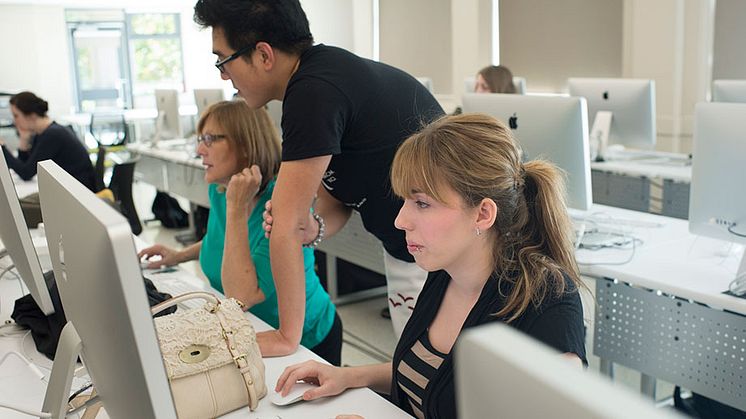
Blog post -
A glimpse into the future: Charting the impact of digitalisation on work
Since the advent of the Industrial Revolution, technological change has brought both opportunities and risks. However, the widespread entry of computing technology into the workplace in the 1980s, and in particular the arrival of the World Wide Web in the 1990s, has profoundly affected society and the economy. This ‘digitalisation’ has already changed the nature of work: today’s offices look markedly different from their counterparts in the 1980s. Banking services, travel, retail –have all changed, with knock-on effects for employment and working conditions. And, with no signs of events slowing, more profound change may be on the way.
A 2014 study from think-tank Bruegel estimates that over the next 20 years, more than 50% of the EU workforce will be at risk of having their job at least partly replaced through automation. The authors expect that key technological advances (in machine learning, artificial intelligence, and mobile robotics) will affect mainly the low-wage, low-skill sectors that traditionally were immune from automation. The potential pressure on employment can be glimpsed anecdotally in the example of global fashion retailer Zara, with technology that is readily available today. The company has attached radio-frequency identification (RFID) tags to its clothing; using handheld devices to point at the tags on racks, ‘10 staff members can now update a store’s inventory in a couple of hours – work that used to take 40 employees more than five hours’. Meanwhile, across Europe, employers and unions are concerned about the challenge that smartphone care service Uber potentially poses to fair competition for other businesses in the sector and about the erosion of working conditions for drivers.
This is the context of change against which Eurofound will host its Foundation Seminar Series (FSS), which this year focuses on the impact of digitalisation on work. With the subtitle ‘Building up national agendas for better implementation of digital changes’, the 2016 FSS follows the model of previous events, bringing together representatives of social partners and governments to debate the issue of digitalisation in a highly interactive, workshop-based atmosphere – one conducive to mutual learning and sharing understanding of a rapidly evolving situation.
Participants will gather tomorrow at Eurofound’s premises for the first session of the invitation-only event. In addition to gaining an understanding of the current state-of-play of digitalisation both across the EU and in a selected number of Member States, participants will share experiences of the challenges of digitalisation – for companies and sectors; for work organisation; for skills; for the employment relationship; for working conditions; for how public services are designed and delivered, and what that means for the relationship between service providers and service users.
And of prime importance to the FSS, given the makeup of its participants, will be an exploration of the role that social dialogue can play in implementing digital and technological change in such a way that the benefits are maximised for citizens, workers, employers and governments. These discussions will then form the basis for ongoing work to be explored in greater depth in the second session of the seminar – to be held in Berlin in October.
Join the debate on Twitter at #FSSDigital
Watch Eurofound Director Juan Menéndez-Valdés introduce the #FSSDigital event here.

